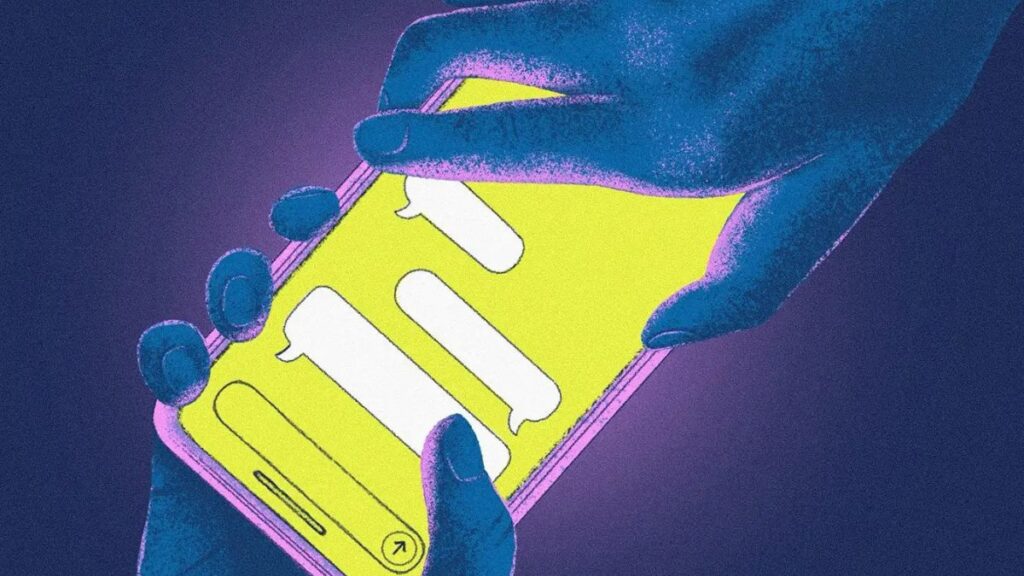Introduction: The Crisis No One’s Talking About
There’s a cultural shift brewing beneath the surface—one that isn’t splashed across headlines or dissected in primetime debates, but its fingerprints are everywhere. Productivity is slumping, dopamine addiction is on the rise, and motivation, particularly among young men, seems increasingly elusive. Welcome to the fapdemic—a digital-era phenomenon that transcends the memes and Reddit threads to reveal something deeper, more unsettling, and critically relevant.
The term “fapdemic” may sound tongue-in-cheek, but it points to something more serious than its etymology suggests. Coined from a mash-up of “fap” (a slang term associated with compulsive sexual stimulation) and “epidemic,” the fapdemic isn’t about adult content per se—it’s about digital overstimulation and a widespread behavioral loop that has rewired how many interact with pleasure, ambition, and self-worth in the dopamine economy.
This article peels back the layers of the fapdemic as a modern digital crisis—exploring its cultural context, its neurological underpinnings, its impact on mental health, and the growing movement of those seeking to escape it.
The Dopamine Trap: A Brief Primer
Dopamine is the molecule of more. It’s the neurotransmitter responsible for anticipation, reward, and craving—not just for pleasure, but for food, validation, success, and connection. In a world where every scroll, tap, and swipe can deliver a hit of dopamine, our brains are facing something they were never built to handle: constant stimulation without effort.
The fapdemic fits right into this neurochemical dynamic. At its heart is the instant-gratification culture fueled by internet access, algorithmic targeting, and hyper-personalized digital content. Combine that with the natural wiring of the human reward system and you’ve got a self-reinforcing loop that’s harder to break than most drug addictions.
The Cultural Cocktail: Loneliness, Accessibility, and a Shrinking Social World
Before diving deeper into the neurological impacts of the fapdemic, let’s examine its cultural context. This isn’t happening in a vacuum. It’s thriving in a moment marked by three key forces:
1. The Loneliness Epidemic
From Japan’s “hikikomori” to the rise in solo living across Western nations, isolation is the new norm. COVID-19 only accelerated what was already a growing trend: people are more digitally connected than ever, yet emotionally and socially starved. In this context, the instant comfort of digital stimulation becomes a crutch.
2. On-Demand Everything
Gone are the days of delayed gratification. We stream TV shows in bulk, get groceries within hours, and date with a swipe. The ease of access has made discipline feel like an outdated virtue. This “on-demand” lifestyle seeps into every area of behavior—training the brain to expect reward without resistance.
3. The Shrinking Male Identity
Let’s be clear: the fapdemic isn’t gender-exclusive, but the cultural implications are particularly pronounced among young men. With shifting expectations around masculinity, fewer role models, and declining career prospects, many feel adrift. The result? Retreat into comforting digital patterns that simulate achievement without delivering substance.
The Neurological Fallout
Let’s get anatomical. When we talk about the fapdemic, we’re really talking about how dopamine desensitization rewires the brain. Here’s how it works:
-
Baseline dopamine levels drop when overstimulated, making everyday tasks feel dull and unrewarding.
-
Motivation decreases, because nothing matches the fast, predictable reward of digital habits.
-
Executive function suffers, weakening impulse control and critical thinking.
-
Stress and shame loops form as individuals recognize their dependency but feel powerless to break it.
And while the behavior in question may seem trivial or private, the outcomes aren’t: lower self-esteem, reduced academic and professional achievement, increased rates of depression and anxiety.
This isn’t about morality. It’s about neuroscience.
The Productivity Paradox
It’s hard to hustle when your brain’s pleasure center has been hijacked. Across online forums like Reddit’s NoFap, Reboot Nation, and Digital Minimalism, thousands of young people document eerily similar experiences: a foggy brain, a lack of ambition, a sense of aimlessness.
The fapdemic contributes to the productivity paradox of our times: with more tools than ever to create, learn, and grow—why are so many people struggling to do so?
When pleasure is cheap and frictionless, work feels disproportionately hard. It’s not laziness—it’s neurochemical imbalance.
Mental Health in the Age of Infinite Scroll
What does the fapdemic have to do with mental health? Everything.
Many people who describe themselves as caught in this cycle also report:
-
Social anxiety
-
Low self-image
-
Depressive symptoms
-
Anhedonia (the inability to feel pleasure from normal activities)
Here’s the kicker: most of them don’t even realize what’s causing it. They blame themselves, their circumstances, or bad luck. But more and more psychologists are connecting the dots between digital overstimulation and what appears on the surface as “unmotivated” or “lazy” behavior.
Dr. Anna Lembke, author of Dopamine Nation, points out that modern society has turned every individual into their own dopamine dealer. What’s missing from the conversation is just how deep the feedback loop goes.
Breaking the Cycle: From Meme to Movement
The silver lining? Awareness is growing.
From YouTube influencers to neuroscience-backed programs, a growing counterculture is forming around breaking free from the fapdemic. What began as fringe “NoFap” challenges have morphed into more sophisticated self-development ecosystems focusing on:
-
Dopamine detoxing (removing high-stimulation habits)
-
Cold exposure therapy
-
Daily exercise and goal setting
-
Mindfulness training
-
Digital minimalism
They don’t all agree on methods, but they share a common belief: the human brain wasn’t built for this level of stimulation, and if you want your life back, you have to rewire from the inside out.
Case Study: The Reboot Generation
Let’s look at the emerging Reboot Generation—young adults who’ve made the conscious choice to pull the plug on their overstimulated lifestyles. They track their “streaks,” journal their cravings, and form online communities rooted in accountability.
Their stories are astonishingly consistent:
-
After two weeks: energy returns, mental fog lifts
-
After one month: confidence grows, social anxiety recedes
-
After three months: new habits replace the old, including reading, fitness, and career-building
These aren’t anecdotes. They are transformations. And they signal that the fapdemic, while pervasive, isn’t invincible.
Tech’s Role in the Crisis
Tech platforms, naturally, don’t get off easy in this conversation. Algorithms are designed to exploit behavioral loops, and the fapdemic is a consequence of that dark efficiency. From TikTok to Twitter, even non-sexual platforms manipulate the same dopamine systems to keep users hooked.
Some argue that placing all the blame on users is like faulting a gambler for being in a casino built to trap him.
To solve the fapdemic, we need both:
-
Individual responsibility for behavior change
-
Systemic awareness of how tech exploits the brain
Big Tech may not course-correct willingly, but the consumer backlash has already begun—with more people demanding ethical design, time-bound apps, and transparency in engagement algorithms.
The Philosophical Core: What Are We Really Addicted To?
Strip away the digital layers, and the fapdemic reveals a deeper philosophical dilemma. What are we chasing in all this stimulation?
Validation? Connection? Escape?
The fapdemic is not about a single behavior—it’s about how modern life has created a pleasure-rich, meaning-poor landscape. We’re overstimulated and undernourished, emotionally and existentially. In that vacuum, it’s easy to drift into cycles that feel good in the moment but leave us emptier afterward.
In other words, the fapdemic isn’t just a digital hygiene issue. It’s a crisis of purpose.
How to Escape the Fapdemic: A Practical Guide
Ready to opt out? Here’s how to start.
1. Audit Your Inputs
Track everything that triggers your desire for easy dopamine: Instagram, YouTube, even that late-night doom scroll. Awareness is half the battle.
2. Replace, Don’t Just Remove
Cold-turkey doesn’t work long-term without meaningful replacements. Hike, journal, lift weights, build something—anything that creates delayed reward.
3. Start a Streak
Momentum matters. Use a tracker or calendar. Seeing that progress builds motivation in real time.
4. Build a Tribe
Find others on the same path. Discord communities, Reddit threads, and local meetups offer accountability and inspiration.
5. Embrace Discomfort
This is non-negotiable. Escaping the fapdemic means choosing growth over ease—again and again.
Final Word: From Passive Pleasure to Active Purpose
The fapdemic may sound like a joke, but its consequences are anything but. It is the quiet erosion of attention, ambition, and identity in a world designed for distraction. But it is not irreversible.
We don’t need to return to a puritan past or cancel the internet. We need to reclaim control over our most precious resource: attention. We need to shift from passive pleasure to active purpose.
Because at the end of the day, your life is not defined by what feels good in the moment—it’s defined by what you’re willing to build over time.
The fapdemic ends when enough of us decide we’re done outsourcing fulfillment to screens.







